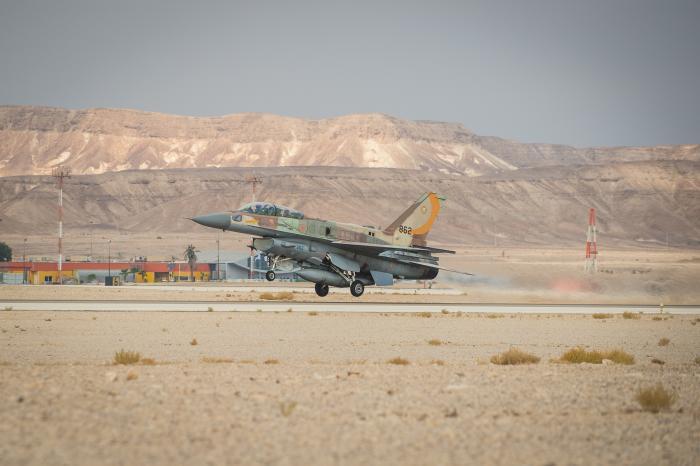by Brig. Gen. (res.) Asaf Agmon
Space and the “cyber warrior” begin to “threaten” that privileged status of the IAF, and this fact could have a far-reaching effect on the offensive operational capabilities of the most important tactical and strategic offensive arm of the State of Israel. It is essential that we consider this issue, and the sooner – the better.

In
his lecture at the 10th Ilan Ramon International Space Conference last
month, Maj. Gen. David J. Buck, Vice Commander of USAF Space Command,
stressed that the three primary missions of Space Command are achieving
victory in present wars/conflicts, preparing and deploying for the wars
of the future and maintaining and developing the qualities of the
personnel serving in Space Command.
Not surprisingly, despite the vast differences between the
challenges facing the air and space arm of the State of Israel and those
facing the air force of the world’s No.1 superpower, the USA, it is
evident that the three challenges outlined above are precisely the three
primary challenges facing us these days, right here in our own region.
The day-to-day challenges facing the defense establishment
of the State of Israel do not leave any room for doubt as to the vital
nature of the efforts made day after day, hour after hour for the
purpose of ‘winning’ the present wars.
The IAF occupies a constantly-increasing share of the
solutions IDF provides for the present threats. For this reason, IAF
initiated a substantial change in its structure and in the capabilities
of its operational staff – a change that would enable it to reflect the
current operational concept of the force and its ability to execute the
employment of the primary fire element of the State of Israel vis-à-vis
the threats presented to us by Hezbollah in the north and Hamas in the
south.
However, opposite all of the above, we must not ignore
something that we encountered in the past, namely – the changes and
developments on our enemies’ side. Our enemies, although they may be
inferior as far as the resources available to them are concerned,
developed and are still developing methods, weapon systems and combat
elements that are based on correct lessons they had derived from their
confrontations with us and from other confrontations in our region.
The needs of the hour call for a massive investment in this
contest. Indeed, this effort currently occupies the best minds of the
IDF generally and IAF in particular.
It was enlightening to learn from the lecture of Maj. Gen.
Buck how the USA understands that the technological advantages it
currently possesses will not be sufficiently effective for the wars of
the future unless it takes the essential measures required in order to
retain its advantage. The investments currently made by the USA in space
for the purpose of retaining its advantage into the future are simply
amazing. The defense establishment of the USA realized that the
advantage is there for the taking by the side that will more effectively
combine and synchronize its military capabilities while leveraging its
military achievements in a maximum number of realms (air, land, sea,
space and cyberspace), accurately and timely.
At this point I would like to warn against the trend of
decentralizing the responsibility for space and cyberspace in the IDF.
The massive workload assigned to the IAF has led to a situation where
the fields of space and cyberspace are not assigned the appropriate
priority by the IAF, and in some areas, even on the organizational
level, they were taken away from the responsibility of IAF.
The risk involved could have a profound effect. Firstly, an
overriding principle mentioned as a primary factor that would lead to
victory in future wars – the ability to combine and synchronize our
capabilities in different fields, which we refer to as interoperability,
will be severely undermined. Beyond that, the primary advantage of IAF
is the fact that it maintains an offensive concept, which is so vital to
the attainment of victory under the conditions in which our country
operates, so these important fields must not be left in the hands of
elements who naturally concentrate on defense or on the attainment of
intelligence primarily.
The last – but by no means the least – risk is the fact
that these fields draw the best young forces being recruited into
military service. Until recently, IAF had the privilege of selecting the
”cream of the crop” of the new recruits, each and every year. Space and
the “cyber warrior” begin to “threaten” that privileged status of the
IAF, and this fact could have a far-reaching effect on the offensive
operational capabilities of the most important tactical and strategic
offensive arm of the State of Israel. It is essential that we consider
this issue, and the sooner – the better.
Brig. Gen. (res.) Asaf Agmon
Source: http://www.israeldefense.co.il/en/content/challenges-retaining-our-qualitative-edge
Copyright - Original materials copyright (c) by the authors.
No comments:
Post a Comment